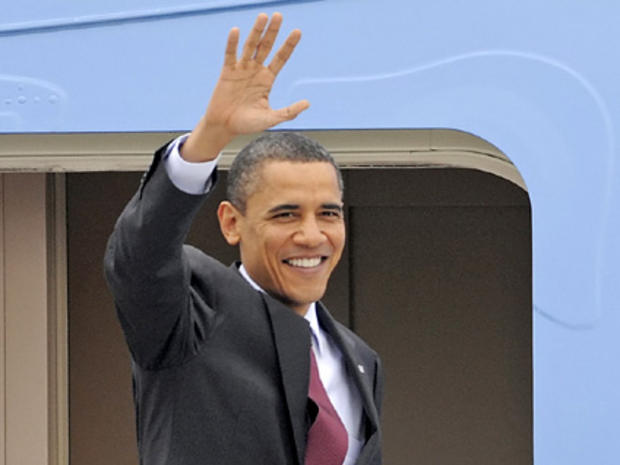GOP Strategy: Hit Obama, Win or Lose
As of this writing, Republicans are ready, reluctantly, to ride herd on financial regulatory reform. Within a few weeks, President Obama will have notched his second major domestic policy victory in as many months.
Then, as the Senate takes up comprehensive energy and immigration reform, the White House plans to unveil a series of government reform proposals in May. With momentum on the side of Democrats, why have the president's poll numbers remain stagnant? Why hasn't the bandwagon effect kicked in?
Republicans have a much better sense of the morphology of public opinion and much better tools to exploit it. Their strategy is based on cynicism, but it is grounded in the reality of what Mr. Obama promised to do once elected to office.
After eight years where government was discredited as a force for good, a force for change, Mr. Obama hoped to revivify the legitimacy of government. He failed, having made mistakes, but having also fallen victim to a partisan stratification he did not fully anticipate and to the threat of a depression and the complete collapse of the American economic system.
As people were hurting, Mr. Obama had to struggle against the populist impulse to punish malefactors (that would come later) and right the ship instead. That cost him significant political capital. Then came the health care reform struggle, which was an openly vicious, squirrelly and knuckle-cracking process - a process that Republicans eagerly exploited.
Mr. Obama got his win, but Republicans managed to molt away whatever remaining credibility that government had.
On financial regulatory reform, the optics are very clear, and Republicans, for a while, couldn't help but revert to their corporatist instincts. But they're not terribly worried about the prospect of a Democratic revival before the November elections. That's because the strategy to obstruct and delay, to prevent even the opening of debate, might make Republicans look churlish, but it has the practical effect of gumming up the works of government, which makes the Democrats look impotent.
Part two of the strategy is hoary and brazen at the same time: portray everything Mr. Obama does as being the avatar of European socialism. This discredits the very idea that government ought to do anything at all. And people tend to believe it, according to public opinion surveys, because they blame government for the underlying economic malaise. Government watchdogs failed to do their jobs, Goldman Sachs got bonuses, and one year later, government is promising to do a better job?
The newest large-sample Pew poll finds that Americans have specific complaints: government is making their daily lives worse. It is growing too fast and doesn't seem to care about saddling future generations with debt. They worry that their taxes are going to go up (even though they've gone down), and with reason - someone will have to pay for all this spending down the line.
Republicans have created a feedback loop: every Obama accomplishment is shunted to the "Socialism" box, and every Obama failure is designated as a sign that Democrats can't govern.
Within the narrow confines of this rhetoric framework, Democrats aren't going to get much political credit for their successes outside of their own base, which is exactly what we've seen: Democrats are growing more enthusiastic about the fall elections, which may help limit their party's losses, but Republicans remain as exercised and as enthusiastic as ever.
Dems, GOP Could Be Near Agreement on Financial Reform, But Partisan Quibbling Continues
GOP Rep. Darrell Issa Initiates Investigation Into SEC's Goldman Suit
The Atlantic's Marc Ambinder is CBS News' chief political consultant. You can read more of his posts in Hotsheet here. You can also follow him on Twitter.
